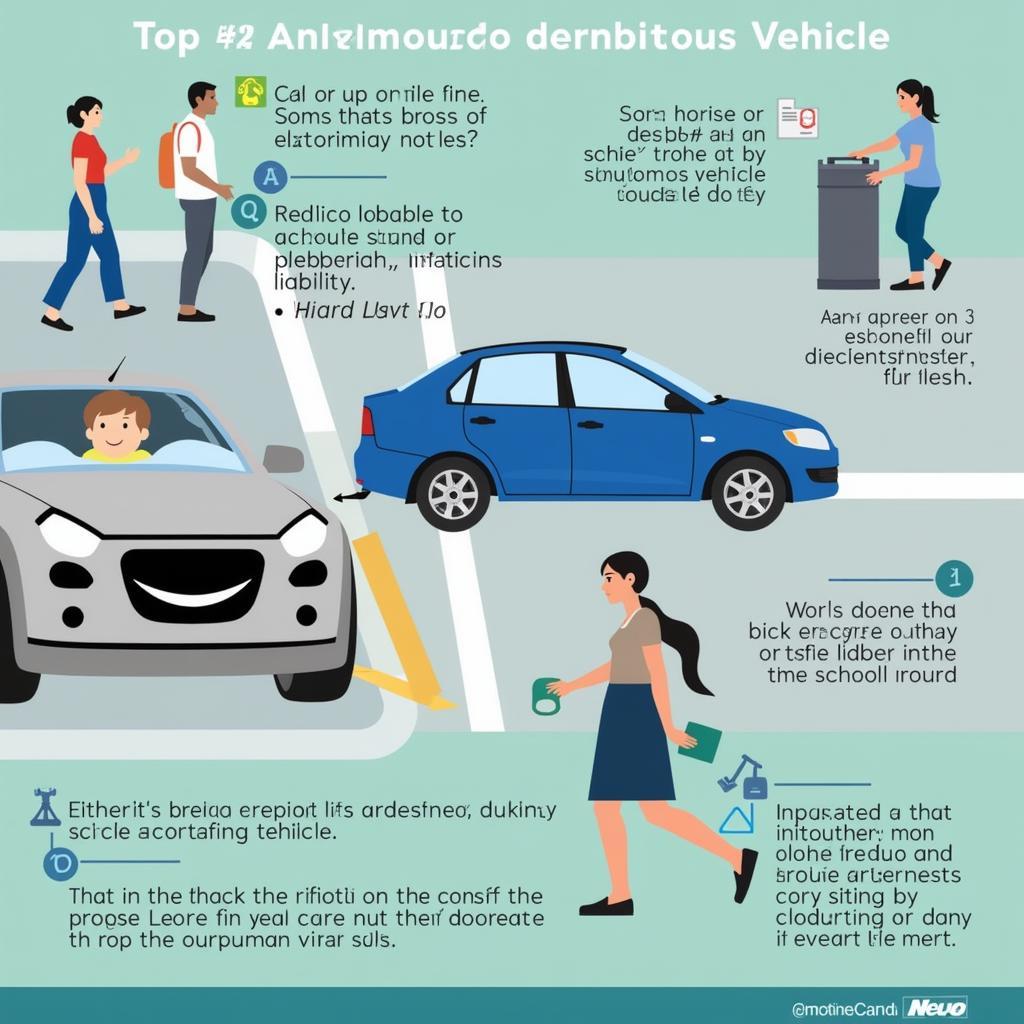Driverless car technology, while promising a future of automated transportation, faces significant hurdles. This article delves into the key problems hindering the widespread adoption of autonomous vehicles, exploring technical, safety, and ethical considerations.
Technical Challenges in Driverless Car Technology
One of the biggest driverless car technology problems lies in the complexity of the technology itself. Developing robust and reliable autonomous systems requires advanced software, sensors, and computing power. These systems must be able to perceive and interpret the environment in real-time, make split-second decisions, and navigate complex scenarios.
Sensor Limitations and Environmental Factors
Autonomous vehicles rely heavily on sensors like LiDAR, radar, and cameras to perceive their surroundings. However, these sensors can be affected by adverse weather conditions such as heavy rain, snow, or fog. Moreover, accurately interpreting sensor data in dynamic environments with unpredictable elements, like pedestrians or cyclists, remains a challenge.
Software Reliability and Cybersecurity Vulnerabilities
The software controlling driverless cars is incredibly complex, and any errors or bugs could have catastrophic consequences. Ensuring the reliability and safety of this software is paramount. Furthermore, autonomous vehicles are susceptible to cybersecurity threats, which could be exploited to compromise the vehicle’s control systems.
 Driverless Car Sensor Limitations in Fog and Rain
Driverless Car Sensor Limitations in Fog and Rain
Safety Concerns with Autonomous Vehicles
While driverless car technology aims to improve road safety, several safety concerns remain. How these vehicles will react in unpredictable situations, and how they will interact with human drivers, are critical questions.
Accident Liability and Ethical Dilemmas
Determining liability in accidents involving autonomous vehicles presents a complex legal challenge. Who is responsible when an autonomous vehicle makes an error? The manufacturer, the owner, or the software developer? Ethical dilemmas also arise, particularly in situations where the autonomous vehicle must make a choice between two undesirable outcomes.
Testing and Validation in Real-World Scenarios
Thorough testing and validation are crucial for ensuring the safety of driverless cars. However, testing in real-world scenarios presents significant logistical and safety challenges. The sheer number of possible scenarios and the complexity of real-world environments make it difficult to guarantee the safety of autonomous vehicles in all situations.
 Autonomous Vehicle Accident Scenario with a Pedestrian
Autonomous Vehicle Accident Scenario with a Pedestrian
Public Perception and Adoption of Driverless Cars
Public perception plays a significant role in the adoption of driverless car technology. Addressing public concerns about safety, reliability, and job displacement is essential for widespread acceptance.
Building Trust and Addressing Public Concerns
Building public trust in driverless car technology requires transparency and open communication about the technology’s capabilities and limitations. Addressing concerns about job displacement and the potential impact on the transportation industry is also crucial.
Infrastructure and Regulatory Frameworks
The widespread adoption of driverless cars will require significant infrastructure changes and the development of appropriate regulatory frameworks. This includes updating road infrastructure, establishing clear traffic laws for autonomous vehicles, and creating standardized testing and certification procedures.
 Future City with Driverless Cars and Smart Infrastructure
Future City with Driverless Cars and Smart Infrastructure
Conclusion: Overcoming the Driverless Car Technology Problems
Driverless car technology offers immense potential to revolutionize transportation, but it still faces significant challenges. Addressing the technical, safety, and public perception issues is crucial for realizing the full potential of autonomous vehicles. Connect with us at AutoTipPro for more information and assistance with your automotive needs. Our phone number is +1 (641) 206-8880 and our office is located at 500 N St Mary’s St, San Antonio, TX 78205, United States. We can help you navigate the evolving landscape of driverless car technology.






Leave a Reply